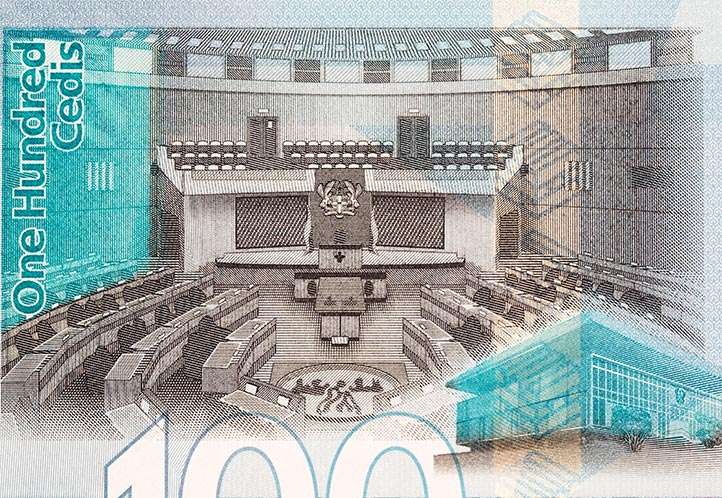The Ghana Fixed Income Market concluded 2023 amidst a backdrop of notable contractions, painting a more subdued picture compared to its prior-year performance. The market, which serves as a vital barometer of Ghana’s debt landscape, witnessed shifts in trade volumes and composition.
The Ghana Fixed Income Market (GFIM), a pivotal player in Ghana’s financial market, concluded 2023 with a cumulative trade volume of GHS 98.44 billion. This figure reflects a substantial 57.26% decrease compared to the robust GHS 230.32 billion traded in the preceding year, signaling a notable shift in market dynamics.
This pronounced decline underscores evolving investor sentiments, likely influenced by a confluence of macroeconomic factors and policy dynamics such as the Domestic Debt Exchange Programme.
Diving deeper into the composition, long-term Government securities retained a dominant yet reduced presence, accounting for 32.47% of the market activity.
Meanwhile, short-term government instruments emerged as a focal point, constituting a majority share of 58.64%. Corporate trades, while representing a smaller slice, still maintained relevance, contributing 8.89% to the overall market activity throughout the year.
Beyond volume, the GFIM also experienced a contraction in the frequency of trades. The total number of trades for the year receded by 24.36%, dwindling from 528,188 trades in 2022 to 399,522 trades in 2023. This decline suggests a potential recalibration among market participants, reflecting a strategic repositioning in response to evolving fiscal and monetary landscapes.
The GFIM, renowned as a crucial barometer of Ghana’s debt landscape, experienced marked contractions throughout 2023. This contraction not only raises questions about the market’s resilience but also prompts a closer examination of the factors influencing investor sentiments.
Factors Influencing the Decline
The telling decline in cumulative trade volume can be attributed, in part, to evolving macroeconomic dynamics. Global and domestic economic conditions often play a pivotal role in shaping investor confidence and risk appetite.
A significant factor contributing to the subdued performance of GFIM in 2023 is the influence of policy dynamics. The implementation of the Domestic Debt Exchange Programme likely impacted investor behavior and trading patterns. Understanding the intricacies of such policy interventions is essential for deciphering the market’s response.
The contraction In trade volume is indicative of shifts in investor sentiments. Investors, influenced by a combination of economic indicators and policy changes, may have adjusted their portfolios in response to perceived risks and opportunities.
As the market evolves, investors may need to reassess and adapt their investment strategies. The reduced trade volume underscores the importance of staying vigilant to changing market conditions and making informed decisions.
GFIM is a market to facilitate the secondary trading of all fixed income securities and other securities to be determined from time to time. The market has been established by key stakeholders in the financial market led by the Ghana Stock Exchange (GSE), Bank of Ghana (BoG), the Ministry of Finance, Central Securities Depository Ghana Ltd (CSD), Ghana Association of Bankers, Financial Market Association (ACI Ghana) and Licensed Dealing Members (LDMs) of the Ghana Stock Exchange.
The GFIM is established under the existing licence that the GSE has, to operate a market for securities. The GFIM shall operate under a committee of stakeholders (GFIM Committee). The Council of the GSE shall have ultimate responsibility for the market.
The regulator for the market is the SEC. BoG shall be consulted on matters to do with the requirements and responsibilities of Primary Dealers as far as the market is concerned and also in respect of certain types of products to be dealt in on the GFIM, especially money market instruments.
READ ALSO: ET Mensah Goes Home



















